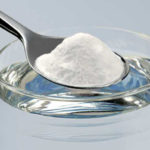Vitamin C, also known as ascorbic acid, plays an important role in keeping the body and skin healthy. For healthy skin, topical application of vitamin C is significantly more effective than oral consumption. That’s why there are many products containing vitamin C. Here are some basic benefits of vitamin C for the skin that you should know.
Boosts collagen production
Collagen is a component that makes up the skin, hair, muscles, and tendons, contributing to youthful and smooth-looking skin. As we age, collagen production slows down, leading to wrinkles and sagging skin. When applied topically, vitamin C accelerates collagen and elastin production, helping to maintain firm and plump skin.

Reduces pigmentation
Vitamin C can improve the skin by reducing the appearance of dark spots (pigmentation). This phenomenon often occurs due to excessive exposure to UV rays from the sun, causing dull and uneven skin tone.
Vitamin C helps inhibit the production of tyrosinase, an enzyme that supports melanin production, preventing pigmentation. However, vitamin C does not lighten normal dark skin tone, so it does not affect normal skin color.
Anti-aging
Vitamin C helps prevent collagen loss due to natural aging. Therefore, applying vitamin C topically can prevent premature skin aging, keeping the skin young and smooth. Additionally, this antioxidant plays an important role in combating unwanted blemishes and preventing early signs of aging.

Protects against sun damage
Exposure to UV rays from the sun damages the skin and reduces collagen. Signs of sun damage include wrinkles, sagging skin, uneven tone or texture, redness, and broken capillaries (spider veins).
Studies have shown that vitamin C in the skin can help protect against the harmful effects of UV rays, which is particularly useful in treating uneven skin tone and wrinkles caused by prolonged or repeated exposure to UV radiation.
Promotes wound healing
Vitamin C plays an important role in repairing and regenerating tissue due to its anti-inflammatory properties and ability to stimulate collagen production, an essential component of connective tissue. Supplementing with vitamin C can improve healing outcomes in people with certain types of wounds, especially pressure ulcers.
Hydrates the skin
Vitamin C can play a crucial role in forming the skin’s outermost layer, enhancing its ability to retain moisture and protect against water loss.
Clinical studies have also demonstrated that vitamin C helps the skin retain water, resulting in plump, smooth, and moisturized skin, preventing it from becoming excessively oily or dry.
Reduces redness
Spots, uneven skin tone, and redness may be caused by various factors, including inflammatory skin conditions. Vitamin C helps minimize redness due to its anti-inflammatory and antioxidant properties. Vitamin C also helps repair damaged capillaries that cause redness on the skin, creating a smoother complexion.
How to Effectively Treat Fishbone Issues at Home
Everyone loves feasting on the deliciousness of fish during the holidays. But, unfortunately, choking on fish bones is an unavoidable issue that may lead to devastating consequences if left unattended for a prolonged period. Let’s see how Dien May Xanh can help us out when fish bones get stuck in our throat.



































